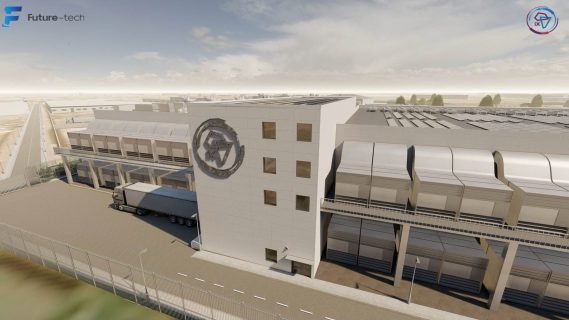As global demand for digital infrastructure grows, Africa is fast becoming a promising frontier for data center development. The continent, long underserved in terms of digital infrastructure, is now seeing a surge in data center investments driven by rising internet penetration, mobile adoption, cloud services demand, and favorable regulatory reforms.
“Africa accounts for less than 1% of the world’s data centre capacity even as mobile data usage grows by around 40% annually – nearly double the global average,” said the report, highlighting a massive infrastructure gap that the new build-outs aim to close”
This quote from a Reuters report underscores the urgent need for digital infrastructure on the continent, with mobile data traffic surging yet hosting capacity still lagging far behind.
The Digital Surge
Over the past decade, Africa’s digital landscape has transformed dramatically. The number of internet users has grown exponentially, powered by affordable smartphones, improved connectivity, and undersea cable expansions such as Equiano, 2Africa, and PEACE. This has triggered demand for local content hosting, cloud computing, and enterprise services – all of which require robust data center infrastructure.
Multinational tech giants like Microsoft, Google, Amazon Web Services, and Huawei have recognized the region’s potential. Microsoft Azure opened data centers in South Africa as early as 2019, and AWS followed suit with its Cape Town region. More recently, Google has announced plans for cloud regions across the continent, including Kenya and Nigeria.
Nigeria will also soon open Equinix’s LG3 data center in Lagos. The US$22 million facility is part of the American multinational company’s US$100 million digital infrastructure investment in Africa. Morocco has also partnered with American tech firm, Iozera to build a cutting edge 386MW data center and AI hub that will be located in the city of Tetouan.

Rising Local and Regional Players for Data Center Projects in Africa
While global corporations bring in capital and expertise, African companies are also emerging as significant players in the data center space. Liquid Intelligent Technologies (formerly Liquid Telecom) operates several Tier III data centers across countries like South Africa, Kenya, and Zimbabwe. Africa Data Centres, a subsidiary of Cassava Technologies, is also rapidly expanding its footprint, targeting over 10 countries in the coming years.
Nigeria
Airtel Data Center in Nigeria
Airtel Nigeria has revealed that it will be investing $120million in building its data centre in the country. The data centre will become the largest in the country after its completion with a capacity of 38 megawatts.
In Nigeria, MainOne (acquired by Equinix) has become a key player, while Raxio Group is developing facilities in Uganda, Ethiopia, Mozambique, and the Democratic Republic of Congo.
Sifiso Dabengwa Data Center
MTN Nigeria launched Sifiso Dabengwa Data Centre, West Africa’s Largest Tier III Data Centre. Roger Shutte who is MTN Nigeria’s General Manager for Infrastructure, revealed to the press during a briefing that the facility will be scaling up to 14 or even 20 megawatts. This, Roger said, will depend on future demand.
Nigeria Visa Data Center
Visa is also eyeing a piece of the cake in Nigeria and announced plans to invest in a Visa data center in the country. This was during a visit by the Regional President of Visa for Central and Eastern Europe, the Middle East, and Africa (CEMEA), Mr Andrew Torre.
South Africa
Teraco, a Digital Realty company and Africa’s largest interconnection hub, has recently completed the expansion of its JB4 Bredell Campus data centre in Ekurhuleni, Johannesburg. The JB4 Africa now becomes largest standalone data centre, with 50MW of critical IT power. South Africa’s role as sub-Saharan Africa’s technology hub is unquestionable.
Kenya
Konza Technopolis Data Center
The Kenyan government said last year that it was setting aside KSh5.2 billion for the construction of a new data center in Konza Technopolis, a new Smart City being constructed outside the capital Nairobi.

Airtel Plans Data Center
Airtel Africa reported that the company plans to build a new data center in Nairobi, Kenya, marking its second facility in Africa after Nigeria. The telecommunications company also recently held a ground breaking ceremony for the $150 million, 44 MW data center project located in Tatu City, a suburb of Nairobi. Airtel’s new data center in Nairobi expects commissioning at the beginning of 2027.
Ethiopia
BitCluster Data Center Ethiopia
Early last year, BitCluster became the first Russian company to open a data center in Ethiopia, rated at 120 MW capacity. The data center is located in the Ethiopian capital of Addis Ababa and covers a total area of 30,000 square meters.
Why Africa? Why Now?
Several key factors are accelerating this growth:
- Population and Market Size: Africa is home to over 1.4 billion people. It is also home to the world’s youngest and fastest-growing population.
- Digital Transformation: Governments and enterprises are digitizing services. This is driving demand for cloud infrastructure.
- Data Sovereignty Laws: More African countries are introducing regulations that require local data storage, boosting the need for more in-country data centers.
- Green Energy Potential: Countries like Kenya, South Africa, and Ethiopia offer access to renewable energy, which is essential for sustainable data center operations.
Challenges Faced by Data Center Projects in Africa
Despite the momentum, Africa’s data center boom faces several hurdles. Power reliability remains a critical issue, particularly in countries with unstable electricity grids. High construction and operational costs, limited technical talent, and regulatory bottlenecks can also slow progress. However, increasing collaboration between governments, investors, and developers is helping mitigate these issues.
The Road Ahead for Africa Data Center Projects
Africa’s data center market is expected to grow at a compound annual rate of over 12% through 2028, according to industry analysts. With the right mix of investment, policy, and innovation, the continent could advance past traditional stages of digital development and become a critical node in the global data economy.
From Lagos to Nairobi and Cape Town to Kigali, the rise of data centers in Africa continues to signal the technological shift reshaping the continent’s economic future. Wholesomely, Africa is no longer just consuming digital content, it is also becoming a hub for storing and distributing it.

Leave a Reply